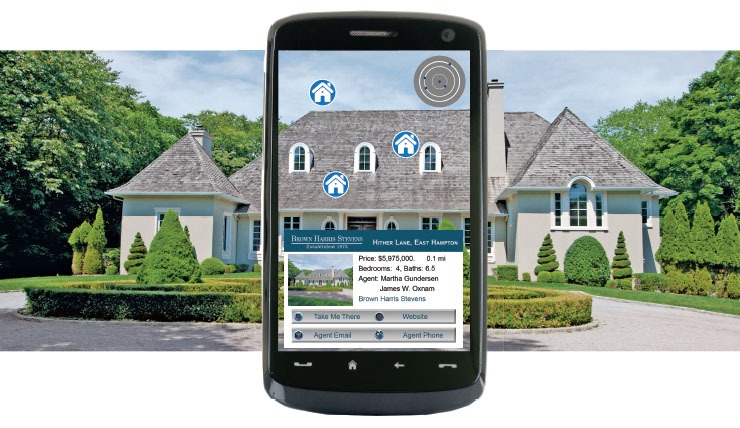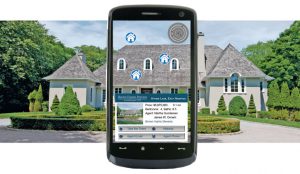


 The real estate industry in the United States is currently the most lucrative and profitable sector, worth an estimated $40 trillion as of 2015. Residential real estate brings in $23 trillion a year and commercial real estate rakes in $15 trillion a year. To put it plainly, the American real estate industry is larger than any other industry in terms of fixed income, health care, and equity. It’s a formidable sector with serious influences on job growth, the economy, and the nation’s infrastructure. That said, one would think an industry so profitable would be leading the charge with technology incorporation and development. Not necessarily. The powers that be in the enormous sector have been slow to adapt to the changing trends and want to keep the industry’s focus on one-to-one clientele relationships, since that is what secures a purchase at the end of the day. There is great potential for technological inclusion in the real estate industry. Realtors saw a steadied, predictable real estate market return to the U.S. for the first time in 2015. Unemployment is decreasing, the economy is expanding, and disposable income is increasing. Basically, people are starting to buy property again. With this encouraging change, members of the real estate industry are turning their attentions to the tools and opportunities that come with increased technology. The future of technology in the real estate industry should be interesting as we head through 2016 and beyond. Here are some notable trends to look for.
The real estate industry in the United States is currently the most lucrative and profitable sector, worth an estimated $40 trillion as of 2015. Residential real estate brings in $23 trillion a year and commercial real estate rakes in $15 trillion a year. To put it plainly, the American real estate industry is larger than any other industry in terms of fixed income, health care, and equity. It’s a formidable sector with serious influences on job growth, the economy, and the nation’s infrastructure. That said, one would think an industry so profitable would be leading the charge with technology incorporation and development. Not necessarily. The powers that be in the enormous sector have been slow to adapt to the changing trends and want to keep the industry’s focus on one-to-one clientele relationships, since that is what secures a purchase at the end of the day. There is great potential for technological inclusion in the real estate industry. Realtors saw a steadied, predictable real estate market return to the U.S. for the first time in 2015. Unemployment is decreasing, the economy is expanding, and disposable income is increasing. Basically, people are starting to buy property again. With this encouraging change, members of the real estate industry are turning their attentions to the tools and opportunities that come with increased technology. The future of technology in the real estate industry should be interesting as we head through 2016 and beyond. Here are some notable trends to look for.
There’s plenty of rental apps out there, like Zillow, which allow users to circumnavigate the drawn out, broker process in securing an apartment. Though it hasn’t been incredibly successful, it serves as a model for real estate apps that are sure to spring up. The majority of people do their business, read the news, and online shop on their mobile devices today. Some companies are already competing in the race to develop the perfect property management app, which would allow owners to oversee and easily track commercial real estate assets. Just the beginning of real estate mobile app potential, be on the lookout for innovative and locally sourced apps that will connect more buyers with the homes of their dreams. 2) Real estate analytics Social media and website development today provides the user with countless analytics about their sales, popularity, earned media, and shared media. Facebook, for free, let’s users know when a post is performing 95% better than previous posts. Technology will allow for realtors to track analytics and adjust their marketing approach based on the findings. Much of the data realtors should be focusing on is already available through open data initiatives. The technological potential in harnessing analytics for finding the perfect buyers and sellers is enormous. 3) Advanced listing services If one takes a minute to think about Uber or Lyft, they’re companies that profit from connecting people in search of transportation with a nearby car. It’s an instant gratification approach to the world today. With social media and so many other immediate forms of communication, people expect to have their needs met in a timely and appropriate manner. It’s only an amount of time before a company profits from pairing listings with buyers. Tech-enabled commercial listing services could potentially instantly notify a buyer based on their input price preferences, location, etc. The less-efficient relationship model of today will surely fade into the past. 4) Mobilized lending With recent regulatory changes in the real estate industry, a huge opportunity for innovation in lending has opened up. Real estate lending is the largest lending sub-category in the country. Already, numerous companies are competing for creating the most time, resource, and money efficient platform for turning both residential and commercial lending into quick and easy processes. Through a combination of mobile apps and digitized monetary collection, lending is sure to become an action that only takes a minute throughout the day. Clearly, the real estate industry could profit immensely from opening the doors to the technological wave it so adamantly shut out for the last decade. With the pace of technological development as of late, there are only going to be more digital, mobile app, analytic, and electronic capabilities for how sectors do business. Many realtors are against adopting technology for the house selling process as they think the real estate industry relies on the in-person, thought out process. Though this is true, there are no reason platforms and apps won’t pop up to bring these two people together faster. Time is money, and every other sector around the world has jumped onto the instant gratification bandwagon.
Message has been sent!